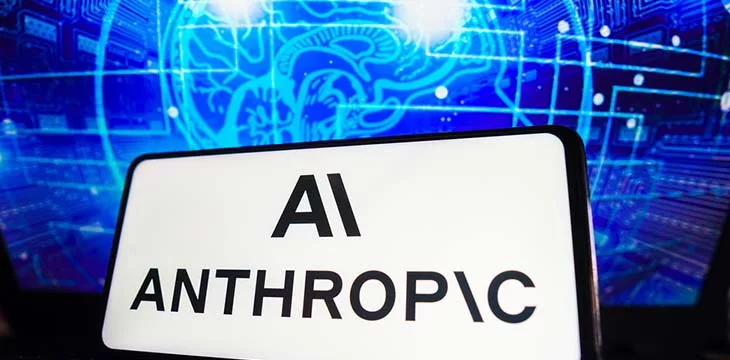|
Getting your Trinity Audio player ready...
|
A coalition of music publishing firms has begun legal proceedings against artificial intelligence (AI) firm Anthropic over allegations of copyright infringement in training its model.
The class action lawsuit filed on October 18 has industry giants, including Universal Music Group (UMG) (NASDAQ: UMGNF), ABKCO Music & Records, and Concord Publishing, as part of a laundry list of plaintiffs. Per the filing, the plaintiffs alleged that Anthropic engaged in the gross violation of intellectual property rights in the training of its chatbot, Claude.
The core of the case revolves around the “indiscriminate” use of song lyrics and compositions owned by publishing houses by Anthropic in training its model. In their submission, scraping song lyrics from unauthorized sources allows the AI model to generate identical copies of the lyrics “in clear violation of Publishers’ rights.”
While music lyrics aggregators provide this service, the plaintiffs point out that the platforms have obtained permission to use lyrics. The filing alleges that Anthropic AI infringes copyrights by generating lyrics or chord progressions in an artist’s style.
“Although the AI technology involved in this case may be complex and cutting-edge, the legal issues presented here are straightforward and long-standing,” read the filing. “A defendant cannot reproduce, distribute, and display someone else’s copyrighted works to build its own business unless it secures permission from the rightsholder.”
The aggrieved plaintiffs argue that by violating copyrights, Anthropic has unjustly enriched itself without crediting creators. The company, valued at around the $5 billion mark, has secured billions of dollars in venture capital (VC) funding, with plaintiffs submitting that the AI developer has yet to market to seek creators’ consent.
“Unlike songwriters, who are creative by nature, Anthropic’s AI models are not creative—they depend entirely on the creativity of others,” argued the plaintiffs. “Yet, Anthropic pays nothing to the Publishers, their songwriters, or the countless other copyright owners whose copyrighted works Anthropic uses to train its AI models.”
Anthropic is considered part of the Big Four AI developers, along with OpenAI, Google (NASDAQ: GOOGL), and Meta (NASDAQ: META) despite its valuation compared with its peers.
Copyright lawsuits rise
Leading AI developers are facing a rough patch following an avalanche of class action lawsuits over unauthorized data scraping in the training of AI models. In September, the U.S. Authors Guild dragged OpenAI to court for infringing on the copyrights of fiction writers, alleging a “systematic theft on a mass scale.”
While Google has updated its privacy policy to shield against looming legal issues, Meta has mounted a spirited defense, claiming that its actions amount to fair use. Amid the barrage of lawsuits, regulators are upping their efforts at developing a robust legal framework for AI and other emerging technologies.
In order for artificial intelligence (AI) to work right within the law and thrive in the face of growing challenges, it needs to integrate an enterprise blockchain system that ensures data input quality and ownership—allowing it to keep data safe while also guaranteeing the immutability of data. Check out CoinGeek’s coverage on this emerging tech to learn more why Enterprise blockchain will be the backbone of AI.
Watch: AI truly is not generative, it’s synthetic

 07-03-2025
07-03-2025 





